Les Frères Duport
€8.99 – €18.99
Listen to this album via these Streaming links or get it as High Res Download from NativeDSD.
Description
The Paris Sonatas
The music on this album is of the French brothers Jean-Pierre Duport (1741-1818) and Jean-Louis Duport (1749-1819). The brothers were both brilliant cellists and two of the most important musicians of their time who revolutionized the performance of the cello, their influence has been decisive for the place the cello occupies nowadays. The Duport brothers had immediate success after their respective debuts in 1761 and 1768 at the Concert Spirituel organized in the Tuileries Palace in Paris. Hereafter they started traveling separately and both achieved great success in the English and German music scene. It was in Germany where their lives and the history of the cello would change forever. In 1786 Jean-Pierre was named superintendent of music at the court of Prussia with the accession of Frederick William II to the throne. Jean-Louis joined his brother in 1789 and was appointed first cellist of the court. The flourishing and musical quality of that court, together with the monarch’s interests, made the best musicians visit it and compose for the Duport brothers. Such as Haydn and Mozart and their Prussian Quartets, and Beethoven who wrote his sonatas Op.5 to play with them. These were the first sonatas for cello and piano in the history of music. Jean-Pierre stayed in Germany and worked for the Prussian court until his death. Jean-Louis travelled back to Paris in 1807 where he was in 1812 appointed cello professor at the conservatoire, which he stayed until his death.
Thanks to their constant work and effort to improve their technique the Duport brothers left a legacy: the origin of the Romantic cello, not only through the evolution of the works they wrote themselves, but also thanks to the ones other musicians wrote for them. All the music selected for this album has never been recorded before; it is of the Duport brothers’ youth years which was published in Paris. Some of these sonatas might have even been played in their first concert in the Tuileries Palace in Paris. The sonatas by Jean- Pierre are part of his first two books, published between 1766 and 1772. The three sonatas by Jean-Louis are the whole of his second opus.
Guillermo Turina, cello, and Manuel Minguillón, archlute and guitar, are renowned musicians who both have played as soloists and in orchestras all around the world. The choice of plucked string on this CD as an accompanying instrument could seem a bit anachronistic, being a repertoire that is close to Classicism. This decision, however, was made with an approach to the style and sound that the Duport brothers presented in the Concert Spirituel. As published many times in the Mercure de France newspaper between 1763 and 1765, Jean-Pierre Duport used to play regularly in the Paris chambers alongside Bohemian lutenist Josef Kuhaut, even though the lute was hardly ever being used any more.
Guillermo Turina has made two previous successful recordings on COBRA records together with Eugenia Boix and Tomoko Matsuoka Francesco Supriani: Principles to learn to play the Cello and Giacomo Facco: Master of Kings.
Additional information
| Format | |
|---|---|
| Type | |
| Mastering Engineer | Tom Peeters |
| Recording date: | October 24,25,26 2019 |
| Cables | Acoustic Revive |
| Digital Converters | HAPI, Merging Technologies |
| Recording Engineer | Tom Peeters |
| Microphones | Bruel & Kjaer 4003 modified by Rens Heijnis |
| Recording location | Koepelkerk, Renswoude, The Netherlands |
| Producer | Tom Peeters |
| Recording Software | Pyramix, Merging Technologies |
| Recording Type & Bit Rate | DSD 256 |
| Speakers | KEF 105/3 |
| Artists | |
| Composers | |
| Label | |
| Genre |
Press reviews
BBC Music Magazine
An enjoyable introduction to the Duport brothers who, through writing in the late-18the century, hark back to the Baroque era. Theirs is a simple charm, conveyed with style here. – Jeremy Pound
ResMusica
Pour aborder les œuvres des frères Duport, les capacités d’un interprète soliste doivent combiner maîtrise technique exemplaire et musicalité. Sans ce premier élément, il ne serait pas en mesure de jouer cette musique a tempo, notamment dans les passages virtuoses. La déficience concernant ce deuxième critère, priverait l’exécution de simplicité, de poésie autant que de brio dont ces partitions sont empreintes. Guillermo Turina associant toutes les qualités requises, sa prestation est de bout en bout appréciable voire fascinante. Nous sommes charmés par la clarté de la ligne mélodique, par des phrasés qui font penser au chant humain dans le meilleur sens du terme, par des aigus brillants et colorés (jamais sucrés), révélant une puissance expressive raffinée….Quant à l’accompagnement, Manuel Minguillón s’avère un chambriste attentif à la respiration du soliste, qui par la souplesse de l’articulation et la finesse du toucher, réussit à établir un dialogue exquis avec le violoncelliste, nous faisant percevoir la beauté des contrepoints et l’élégance harmonique que ces œuvres renferment. Voici un disque jubilatoire qui permet de mieux appréhender la transition entre le baroque et le classicisme. Notons encore que la prise de son est remarquable, supporté par un équilibre qui, grâce aux micros disposés ni trop proche ni trop loin, donne l’impression d’assister à un concert.======= Om het werk van de gebroeders Duport te benaderen, moet de soloartiest voorbeeldig technisch meesterschap en muzikaliteit combineren. Zonder dit eerste element zou hij deze muziek niet op tempo kunnen spelen, zeker niet in virtuoze passages. De tekortkoming met betrekking tot het tweede criterium zou de uitvoering van eenvoud, van poëzie en van glans waarmee deze partituren doordrenkt zijn, ontnemen. Guillermo Turina combineert alle vereiste kwaliteiten, zijn uitvoering is fascinerend van begin tot eind. We zijn gecharmeerd door de helderheid van de melodische lijn, door fraseringen die ons doen denken aan menselijke liedjes in de beste zin van het woord en door heldere en kleurrijke hoge tonen (nooit zoet), die een verfijnde expressieve kracht onthullen…Wat de begeleiding betreft, blijkt Manuel Minguillón een kamermusicus te zijn die aandacht heeft voor de ademhaling van de solist, die door de flexibiliteit van de articulatie en de fijngevoeligheid van de aanraking erin slaagt een voortreffelijke dialoog met de cellist tot stand te brengen, waardoor we de schoonheid van contrapunten en de harmonische elegantie waarnemen die deze werken bevatten. Het is een prachtige CD die het mogelijk maakt om de overgang tussen barok en classicisme beter te begrijpen. Voorts is ook de geluidsopname opmerkelijk, mede door een balans die, dankzij de microfoons die niet te dichtbij of te ver zijn opgesteld, de indruk wekt van het bijwonen van een concert. – Maciej Chiżyński
Luister
Het boeiende van deze composities is vooral de veelzijdige en al volwassen behandeling van het cellospel. In warme klanken geven de Spaanse musici Turina (cello) en Minguillón (luit en gitaar) deze sonates met hun toegewijde en technisch tot in de puntjes verzorgde spel een gouden randje.======================================== The fascinating thing about these compositions is the versatile and already mature treatment of the cello playing. In warm sounds, the Spanish musicians Turina (cello) and Minguillón (lute and guitar) give these sonatas a golden edge with their dedicated and technically perfect play. – Frank Hougee
Pizzicato
Of the two cellists Jean-Pierre (1741-1818) and Jean-Louis Duport (1749-1819), cellist Guillermo Turina and lute player / guitarist Manuel Minguillon play six cello sonatas. The cello accompanied by plucked instruments was not uncommon at the time. The two musicians play these works in the fast movements in an extremely vital and dance-like manner, while the slow movements are carefully explored. The cellist’s virtuosity and richness of colors is very impressive.
Opus Klassiek
Grote waardering voor deze Spaanse musici die niet alleen deze sonates aan de vergetelheid hebben ontrukt, maar in hun spel ook blijk geven van groot expressief engagement in een technisch perfecte omlijsting.
================
Great appreciation for these Spanish musicians who not only removed these sonatas from oblivion, but also demonstrate in their playing great expressive commitment in a technically perfect frame – Aart van der Wal

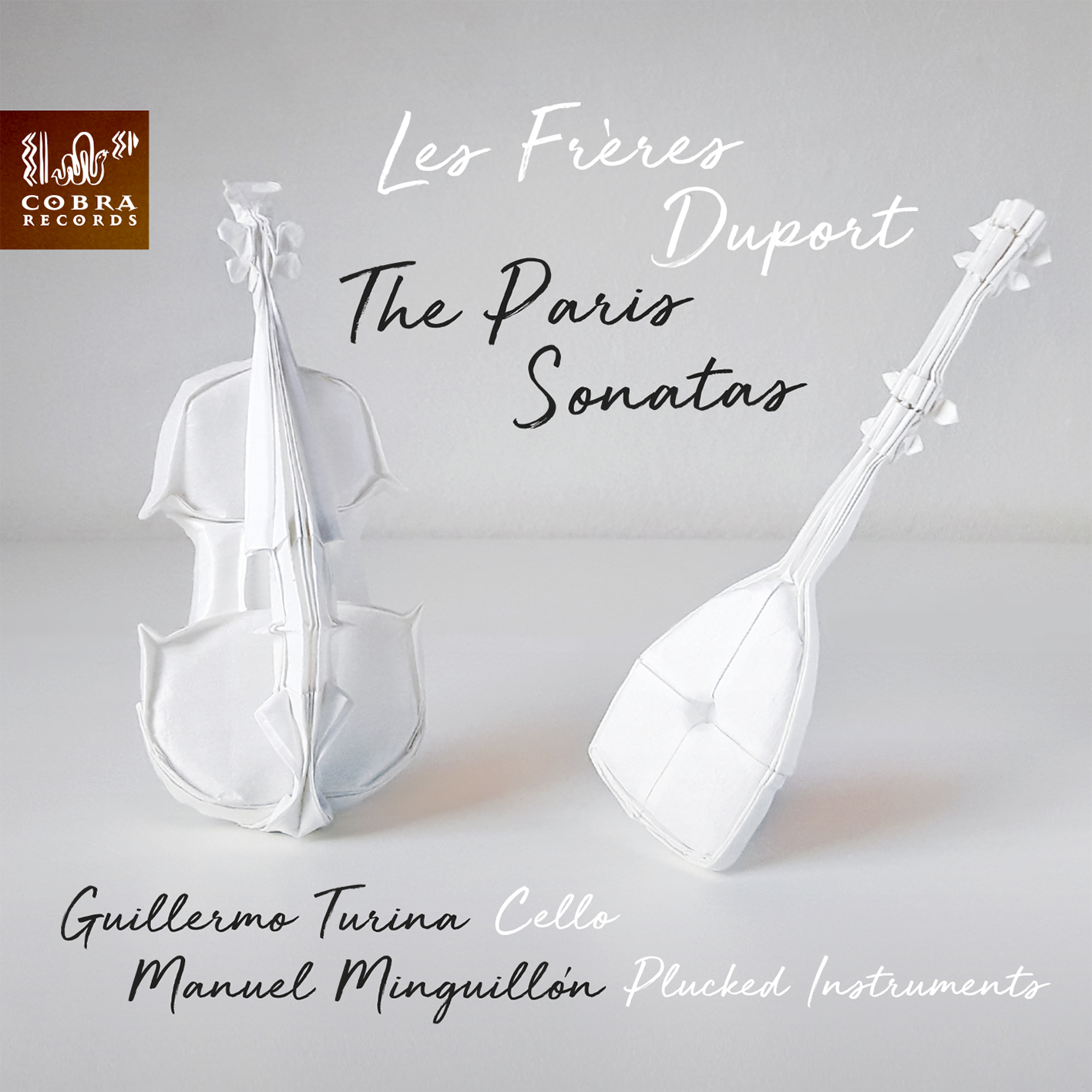
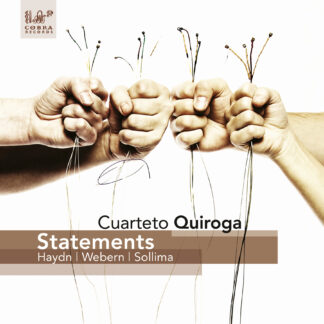
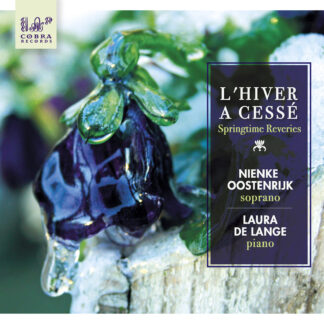
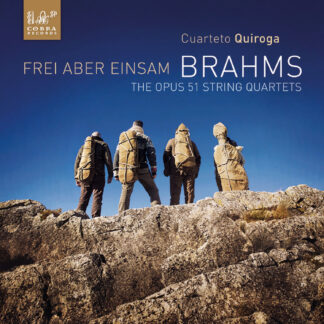
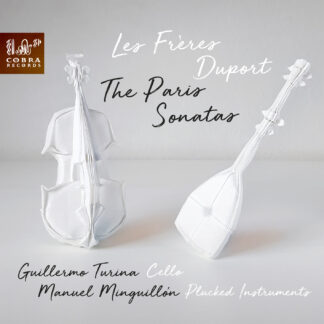
Reviews
There are no reviews yet.